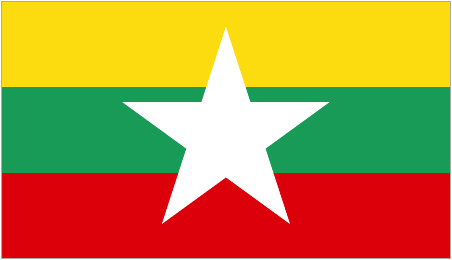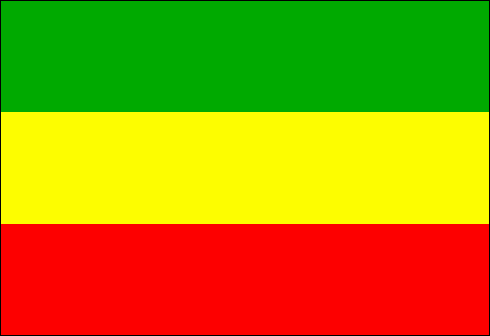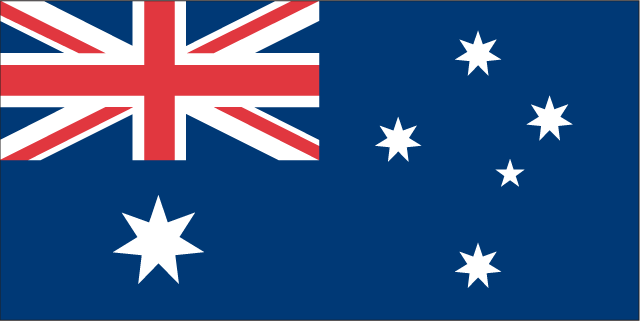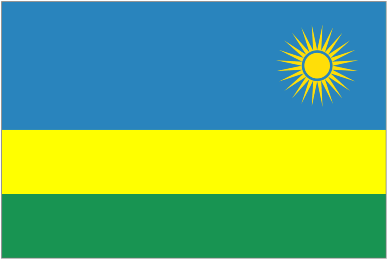
patents & designs explained
What are Patents & Designs?
A patent protects a new, inventive and industrially-applicable invention and grants the patent proprietor the exclusive rights to exploit their invention for a fixed period. Patents can, for instance, be granted for a new product, a new component of an existing product, or a new use of an existing product. Once the patent term has expired, the invention falls into the public domain.
A typical patent example is the chemical compound for a new cleaning product.
A design protects the outward appearance of a product based on its shape, configuration, pattern and/or ornamentation and grants the registrant exclusive rights to exploit the design for a fixed period.
Registrability does not include any graphic elements applied to the product (which may be protected by trade mark registration) or the product's use, function or mechanics (which may be protected by patent registration).
The design’s features must be new and not previously disclosed to the public.
Once the design has expired, it falls into the public domain.
A typical design example is the shape and style of the new cleaning product’s bottle.
key features of Patents
TERRITORIAL
Patents are territorial and cover either a country or groups of countries.
must be new
The patent must relate to a new product, a component of an existing product, or a new use or application of an existing product.
valid for a term
Patents are valid for a maximum upper term, and in some jurisdictions are subject to the payment of annual or periodic renewal fees.
key features of designs
TERRITORIAL
Designs are territorial and cover either a country or groups of countries.
appearance focused
Designs do not offer protection for function. They protect the outward appearance of the product.
valid for a term
Designs are valid for a maximum upper term and in some jurisdictions are subject to the payment of periodic renewal fees.
Meet our patent and design experts
No matter how big or small your idea, invention or design may be, we love to help our clients recognise and protect their IP rights. This is because we are passionate about what we do and we have a proven track record of delivering a first-class service.
louise Audhlam-Gardiner
Louise is a Director in the patents and designs department.
Louise joined Lysaght in 2001 and has a wealth of experience, with over 27 years working in the IP industry. She qualified as a UK Patent Attorney in England in 2000, and as a European Patent Attorney in 2002.
Alongside Richard, she manages and develops the department to deliver a range of services to our clients. In particular, Louise provides advice on global patent filing strategies and overcoming prosecution issues. Louise is also the main contact for Supplementary Protection Certificates (“SPC”) services.
Richard stilwell
Richard is a Manager in the patents and designs department.
Richard has over 11 years of experience working in the IP industry and joined Lysaght in 2015. He became a Chartered Trade Mark Attorney in 2018.
He adds a considerable skill set to the department, where he is responsible for a wide ranging portfolio, particularly for cases in the Caribbean and Middle East. In addition, he aids the trade mark department in being a sounding board or assisting in filing requirements in complex jurisdictions.
latest patent and design news
Following the entry into force of a new Directive and an Amending Regulation of the European Parliament and the Council on 8 December 2024, changes to the law providing for the protection of designs in the European Union (EU) will be introduced in phases on 1 May 2025 and on 1 July 2026. The changes which will be introduced aim to make it easier and cheaper to register designs at the EU level and to harmonise procedures between the European and national systems.
We discuss the most important changes which will come into force in the first phase on 1 May 2025.
The Government of Bangladesh has officially announced in its latest gazette that the Bangladesh Patent Act 2023 came into force from 27 February 2025. The new Act marks a significant modernisation of the country’s legal provisions for patent protection.
Whilst the new Act has so far only been published in the local (Bengali) language, we have ascertained some salient points of the new law, and these are discussed in our article.
The Uruguayan Patent and Trademark Office (DNPI) has now issued its first regulation which establishes the initial legal framework for PCT applications in Uruguay. This follows its accession to the PCT with effect from 7 January 2025. We summarise the main points established so far.
The Bahrain Ministry of Industry and Commerce has recently signed agreements with the South Korean and European Patent Offices to mutually benefit from the Patent Prosecution Highway program. Applicants who receive a positive ruling on patent claims from the Bahrain IPO and either the South Korean IPO or the EPO will enjoy an accelerated examination of corresponding claims in the other office, and vice versa. This will serve to reduce the time it takes to secure patent protection in these jurisdictions, and will streamline the prosecution of those patent applications.
As reported last week on our website, new IP laws relating to copyright, patents, and trade marks were unexpectedly brought into retroactive effect in the Bahamas from 1 February 2025. Whilst we are still awaiting written confirmation from BIPO and approval of the implementing regulations, we have analysed the new laws and summarise here some provisions of particular significance.
Lysaght will be present at both the upcoming CITMA Spring Conference (20-21 March 2025) in London, and the INTA Annual Meeting (17-21 May 2025) in San Diego.
We look forward to attending these discussions, as well as to meeting both new and existing colleagues, clients and agents from around the world. Tim Noel and Richard Stilwell are currently filling their schedules with meetings, so please email us at admin@lysaght.co.uk if you would like to meet with them.
On 25 February 2025, the Bahamas IPO (BIPO) informed practitioners in a verbal communication that new IP laws relating to copyright, patents, and trade marks became retroactively effective from 1 February 2025. However, the subsidiary legislation, including the implementing regulations and official fees, has not been finalised or approved and no timeframe has yet been provided for this.
The ARIPO Administrative Council has adopted several amendments to the Harare Protocol on Patents, Utility Models and Industrial Designs ("the Protocol") and its Implementing Regulations (“the Regulations”), which will come into effect on 1 March 2025. Our article summarises some of the key changes.
It has come to our attention that new patent and trade mark laws are currently under review in the Republic of Kiribati which, once promulgated, will overhaul the current UK-based re-registration systems that currently exist there and will introduce national filing systems.
It has been announced that ARIPO will increase some of its official fees for patent and design matters, which will apply to all new and existing patent cases from 1st March 2025.
The Government of the Kingdom of Saudi Arabia has recently deposited its instrument of accession to the Geneva Act of Hague Agreement Concerning the International Registration of Industrial Designs. This law will enter into force in the Kingdom of Saudi Arabia on 7 April 2025.
The European Patent Office and the Costa Rican Minister of Justice of Peace have just announced that they have signed an agreement allowing European patents to be validated in Costa Rica. Costa Rica is the first country in Latin America to sign such an agreement. The news marks a significant step in strengthening intellectual property protection and fostering innovation and investment in Latin America.
Turkmenistan will become the final Eurasian Patent Organization (EAPO) member state to join the Eurasian industrial design protection system, following the deposit of its instrument of accession to the Protocol on the Protection of Industrial Designs to the Eurasian Patent Convention. The Protocol will enter into force in Turkmenistan on 4 January 2025.
The Eurasian design system, which has been operational since 1 June 2021, allows applicants to obtain simultaneous protection in the EAPO member states of Armenia, Azerbaijan, Belarus, Kazakhstan, Kyrgyzstan, Russia, Tajikistan and, with effect from 4 January 2025, Turkmenistan. Applicants can file a single Eurasian design application, covering up to 100 industrial designs in the same class under the International Classification for Industrial Designs, in order to secure protection across all member states.
As previously reported, Myanmar’s long-awaited Patent Law 2019 came into effect earlier this year. Finally, on 31 October 2024, Myanmar's Intellectual Property Department (IPD) officially begun to accept new patent and utility model applications. This important development finally enables patent applicants to benefit from a substantive patent protection system in Myanmar, with the implementation of the new law replacing the primitive and unsatisfactory “cautionary notice” system for the first time.
Numerous of the USPTO’s fees for patent matters are set to increase on 19 January 2025, including the fees for filing a patent application, Requests for Continued Examination, appeals and the issuance of patents. It is therefore worth considering filing any items with fee increases prior to 19 January 2025 so as to benefit from the current lower fees.
On 1 October 2024, Ethiopia’s Council of Ministers approved the country’s accession to the Paris Convention for the Protection of Industrial Property and the Madrid Protocol for the International Registration of Marks. Ethiopia’s accession to these IP treaties and to trade agreements such as the World Trade Organization (WTO)’s Agreement on Trade-related Aspects of Intellectual Property Rights (TRIPS), along with the necessary modernisation of Ethiopia’s IP laws, will serve to bring Ethiopia onto the global stage for IP and help to stimulate trade and investment in the country.
We have just received information from the Head of the Patent Department at OAPI that Annexes I and II (which relate to patents and utility models, respectively) of the revised Bangui Accord will be brought into force on 1 January 2025. We expect OAPI to issue some further information and guidelines as to the implementation of the new law in the near future.
The Lebanese Intellectual Property Office (IPO) is currently facing significant operational difficulties due to the ongoing economic and political instability in the country. The challenging environment has led to staff shortages, as many employees are unable to attend work. In addition, technical issues with the online portal have further complicated the IPO’s ability to process applications efficiently.
On 15 September 2025, the Qatari Patent Office has reinstated the requirement to pay annuities on pending applications. As a result, applicants are required to ensure that all outstanding annuity fees are paid on each anniversary of the effective filing date of their patent applications (which, for PCT national phase applications, is deemed to be the international filing date), from the 2nd annuity onwards, regardless of whether a grant decision has been issued.
Uruguay will deposit its instrument of accession to the Patent Cooperation Treaty on 7 October 2024, and the agreement will enter into force 3 months later, on 7 January 2025. This accession to the PCT represents a culmination of the country’s efforts to support locally generated inventions, foster investment, create new business opportunities, and elevate Uruguay’s position in the international patent arena.
We remind all applicants and owners of Cayman Islands patent, trade mark and design registrations, and all owners of trade marks in the Turks & Caicos Islands, that the next annual maintenance fees (AMFs) for such cases are due for payment on 1 January 2025. If these annual fees are not paid by 31 March 2025, penalty fees will accrue.
IP Australia has just announced some changes to the official fees for patents, trade marks, designs and plant breeder’s rights, which will come into effect on 1 October 2024. Inter alia, the filing fees for patents and plant breeder’s rights will increase, trade mark filing fees will remain unchanged, and designs filing fees will decrease.
A resolution was published in Argentina on 26 August 2024 which requires that, within 60 calendar days from notification in the Patent Bulletin, applicants with pending patent applications in Argentina must make an express statement as to whether or not the priority claimed has been granted in the country of origin.
The Legislative Assembly of El Salvador has recently approved a new Intellectual Property Law, which will replace, update and combine into a single body the current "Law of Trademarks and Other Distinctive Signs" and the 1993 "Law of Intellectual Property". It will also create the Salvadoran Institute of Intellectual Property (IPSI) which will be in charge of managing procedures and mediating conflicts arising from IP rights.
A new Law on the Protection of Intellectual Property was published in Rwanda on 31 July 2024 and came into force on the same day. The Law paves the way for a more streamlined approach for the filing of patent and trade mark applications, as well as clarifying aspects of their prosecution and registrability.
It has recently been announced that Myanmar’s long-awaited Patent Law 2019 finally came into effect on 31 May 2024. Whilst the Patent Registry has yet to announce an official date for accepting patent applications, or the documentary and formality requirements that will apply, applicants who are interested in seeking patent protection in Myanmar should consider evaluating their inventions and be ready to submit their applications as soon as the Patent Registry begins to accept them.
An official circular was issued by the Qatari Intellectual Property Department on 25 June 2024, outlining changes to the requirements for Powers of Attorney (POA) for IP matters
The Qatari authorities have recently updated their policy on the requirement to pay annuities in respect of patent applications. The newly issued policy dictates that the 4th and subsequent patent annuities cannot be paid until the grant decision is issued, with no option to do so before that time. Accumulated back annuities are payable along with the grant fee, and then subsequent annuities are payable annually on each anniversary of the filing date.
The Ministry of Industry and Commerce (MOIC) of Bahrain and the China National Intellectual Property Administration (CNIPA) have launched a Patent Prosecution Highway (PPH) pilot program, with effect from 1 May 2024 and for a trial period of 5 years. As with other PPH agreements, applicants who receive a positive ruling on patent claims from either the MOIC or CNIPA to expedite the examination of corresponding claims in the other office.
ARIPO and the China National Intellectual Property Administration (CNIPA) have recently implemented a bilateral Patent Prosecution Highway (PPH) pilot program which is being trialled for 5 years from 08 June 2024. The Program allows an application whose claims have already been determined to be patentable by CNIPA to undergo an accelerated examination at ARIPO upon request by an applicant, and vice versa.


























